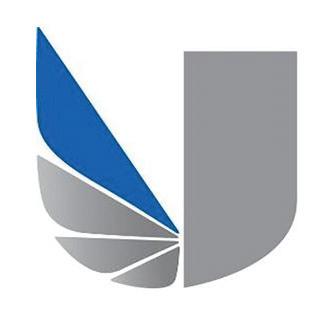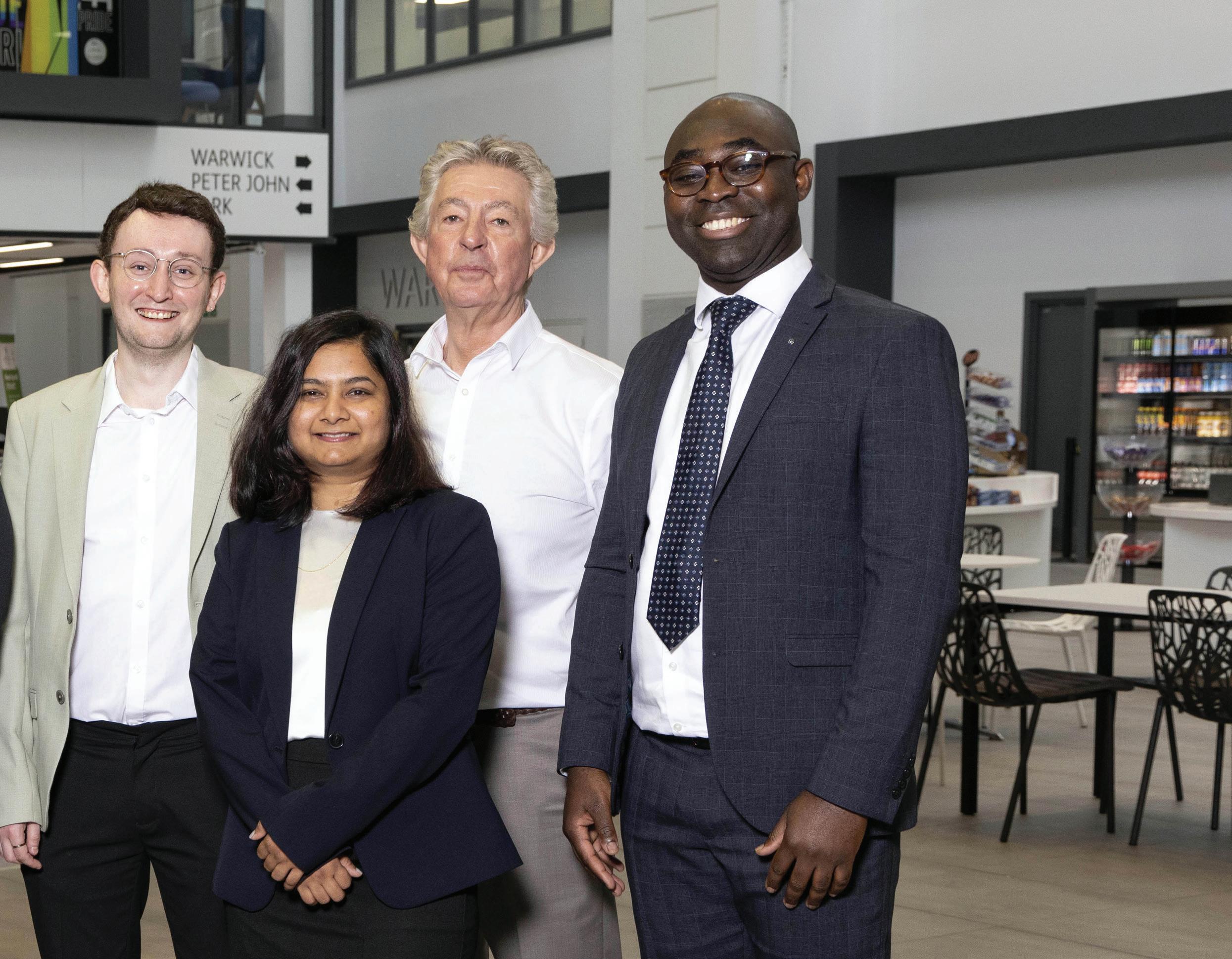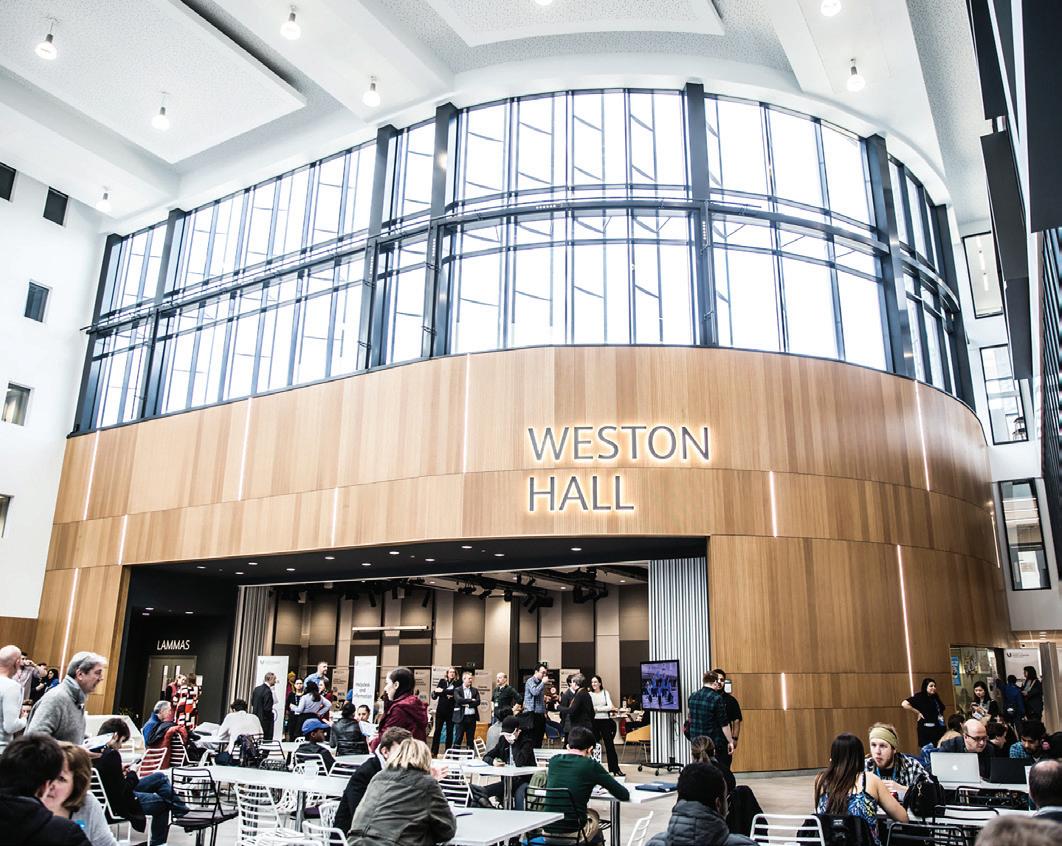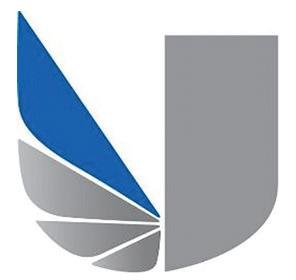






The University of West London prides itself on delivering high-quality career-focused courses, drawing on a heritage of over 150 years in teaching and professional education. It has collected numerous awards over the years, most recently voted the best university in the UK for the student experience and teaching quality by The Times and Sunday Times Good University Guide 2024. The University was also awarded University of the Year for Social Inclusion in 2024. “That is something we are set to continue to provide,” says Vice-Chancellor and President Professor Peter John CBE.
The University of West London (UWL) has roots going back to 1860 when the Lady Byron School was founded, later the Ealing College of Higher Education. In 1992, the thennamed Polytechnic of West London became a university as Thames Valley University (TVU). 18 years later, after several mergers, acquisitions and campus moves, it was renamed with its current name. Today, UWL has campuses in Ealing, Brentford and Reading. Ruskin College, Oxford, joined the University in 2021.


Business Insight had the pleasure of interviewing the university’s Vice-Chancellor and President Professor Peter John CBE, discussing the changes in higher education and what can be improved to make young people better prepared to face the challenges of a fast-evolving workplace.
Professor John has worked in the education sector for more than 30 years and joined the University of West London in late 2007. A graduate of the Universities of Wales, London, Oxford (Jesus College), and Bristol (where he obtained his doctorate), he is the author of seven books including his first, ‘Civilisation Britannique’, which is still used extensively in French universities. His latest, ‘Dimensions of Marketisation in Higher Education’ was published in 2018, and ‘Making Equal: New Visions for Prosperity in the UK’ is due to be published in January 2025.
In 2015, Professor John was a finalist for the
Guardian’s most Inspiring University Leader of the Year award and in 2017 led the University of West London to being awarded the Times Higher Outstanding Senior Leadership Team as well as being shortlisted, a year later, for the prestigious University of the Year Award. In 2020 he was awarded a CBE in the Queen’s New Year’s honours list for his outstanding work and service to higher education.
Looking back at his distinguished career, he says: “Bristol University, where I obtained my PhD and got to supervise PhD students, taught me to be an academic, while Plymouth University, where I moved from being a dean and Pro Vice Chancellor to a Deputy Vice Chancellor in just three years, taught me to be a leader.”
“My current job is less that of an academic but more of a leader, manager, politician, ambassador, accountant, marketeer, and salesman ... you name it. As an academic, I had to learn all those roles on the job when I became a Vice Chancellor and Chief Executive in 2007.”

“It is in the chief executive role that one’s personality really comes to the surface. You can do as many training courses as you like, but in the end, it’s your character that comes through and drives you forward. And I think I learned quickly what I was like – I’m urgent, I’m direct, I’m authentic, I’m available. I walk the walk continuously and meet people from all parts of the institution. So, I suppose I’m very sociable but also ruthless when I need to be. Part of my character also means I am urgent and driven, that means that I don’t procrastinate, I make decisions quickly, based on evidence and advice.”
He points out that the higher education system in the UK has gone through fundamental changes over the last few decades, a topic that he also addresses in his latest book.
“The whole landscape has changed from when I started, when university education was more or less free for students. Since fees were in -
troduced, the marketisation of universities has accelerated. This has affected not only the structure of a university, but also its very fabric – what it means to be a university. As a result, universities have become businesses.”
“That, of course, influences how people operate. If your base has become marketised, then your superstructure will follow, which means, for instance, that the teacher – student relationship undergoes dynamic changes with students being seen as customers. We now have to be sure that as customers they are satisfied. This makes universities more attuned to the market but in so doing something gets lost – a relationship that is based on mutual trust and academic principles.”
Interestingly, turning universities into businesses, with students – aka customers – paying hefty fees, does not mean that universities are necessarily financially healthy, and Professor John points out that it is precisely the principles of the market that are partly to blame.



“The whole sector is suffering from a tough climate and many universities are facing massive finan-
cial deficits. There are too many gaps in that funding mechanism for it to work. The level of fees, for instance, has been frozen since 2017 which means that its actual value of it has been eroded.”

“Put simply, you’re trying to operate a system based on £9200 per student when its real value is barely £6000. The model is flawed. As a result, the universities clearly have to find other forms of income, such as from partnerships with entrepreneurs and businesses, but mainly from overseas students.”
Unlike some, the UWL is financially healthy. This can be attributed, at least to some extent, to Professor John’s leadership; he insists on very close control over spending and very strict metrics to monitor cash flow and costs as well as debt levels. “All the big avenues where we lose money were blocked. We keep very, very tight control over our finances so that we are able to cover our operational as well as investment needs.
Over the last decade, the university has spent over £250 million on infrastructure. In 2015, the St Mary’s Road, Ealing campus underwent a £100m transformation, with a new social area, library, student union, gym and updated facilities.
In 2017, a further £1m was invested in the development of the Paragon campus in Brentford and the addition of a nursing simulation centre at the Reading campus. More investment is now being made in buildings and facilities as well as in programmes and sustainability initiatives.
“I think what’s important over the next few years is that we continue to do the thing we’re good at – providing excellent teaching, and high quality research. This is something that the market has not interfered with at UWL, we look at our students as learners and individuals.”
He adds that the university is also internationally recognized for its research. Almost 80 per cent of its research is rated as world-leading or internationally excellent in the latest government Research Excellence Framework (REF) assessment.
When asked what his imminent tasks are, he says: “I want to see the university future-proof itself. And the only way we can do that is to make sure our core business is strong and financially viable. Student numbers are very good and have been growing and the surrounding infrastructure is of a high quality, and continues to further improve. It also means diversifying when the opportunity arises and ensuring we second guess all the government policy implications.”
In concluding, he emphasises that he would like to see reduced inequality in the education sector, a topic close to his heart, and the basis of his CBE. “Addressing inequality is making a better future for the UK. Offering fair and equal access to education and boosting social mobility is one of the most important things UWL does.”



